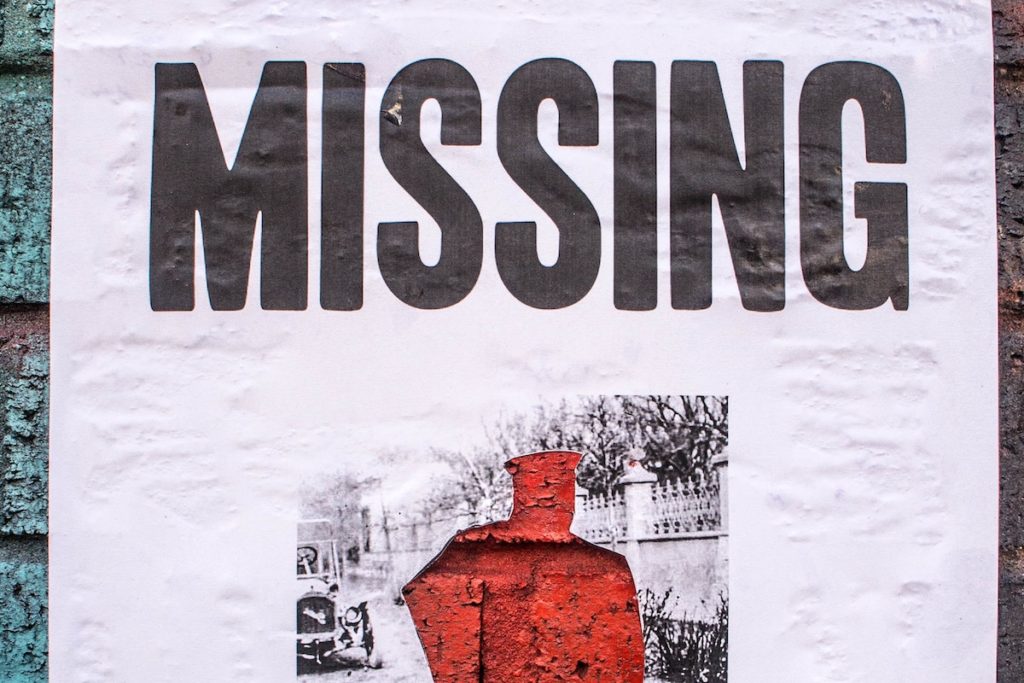
Jessica Yakeley’s narrative review from March 2018’s Lancet Psychiatry, outlines one of the clearest summaries available of the role of psychoanalytic thinking in modern mental health practice today.
She describes three key areas:
- The historical place of psychoanalysis over the last 120 years from Freud to Klein to Winnicott to Bion to Kernberg and beyond.
- The vital role that psychoanalytically informed reflective practice has in helping mental health professionals find meaning in the symptoms of psychiatric illness.
- The modern empirical evidence base of psychodynamic and related psychotherapies.
Arguably it is the third of these points that is the most vital aspect of her paper, with the general atmosphere in mental health services often suggesting that CBT is the only evidence based therapy, but Yakeley’s extensive references allow her to highlight psychoanalysis as at least of equal efficacy in specific situations.
These findings contradict the widespread belief that psychodynamic approaches are short on empirical support, a myth that could reflect the selective dissemination of robust research findings.

It’s widely thought that psychodynamic approaches are short on empirical support. Is this a myth that needs busting?
Methods
This is a narrative review of psychoanalysis, written by an expert author under the main areas of:
- Historical context
- Symptoms having meaning
- Countertransference and reflective practice
- Empirical evidence base
- Neuroscience, attachment & developmental research
Results
Historical context
The paper describes psychoanalysis from Freud’s description of it over a century ago not only, then, as a new treatment but as a metapsychology to scientifically understand the otherwise inaccessible aspects of the mind and mental process. This takes place through rigorous clinical investigation allowed for by free association and interpretation. Yakeley describes the movement from Freud predominantly focusing on intrapsychic factors to the work of Klein, Winnicott and Kernberg who in their own individual ways have emphasised that development takes place within the relationships with other people.
Winnicott famously expanded on the role of the mother, largely an oversight for Freud and the role of environment, largely an oversight for Klein. These developmental theories were further developed by Bowlby’s seminal work on attachment theory, which has greatly influenced Fonagy & Bateman’s development of Mentalisation Based Treatment for Borderline Personality Disorder.
Yakeley highlights the comparison of psychiatry’s clinically objective focus on diagnosis with the psychoanalyst’s focus on the individual and their subjective experience of their emotional life. Referencing the theories of Klein, Bion, Searles, Stack Sullivan and Lacan she brings the psychiatric and psychoanalytic worlds together in considering patients with psychosis.

A contemporary psychoanalytic or psychodynamic model of psychosis proposes that environmental events and experiences interact with genetic and biological factors in the context of early attachment relationships to increase a person’s vulnerability to psychosis.
Countertransference and reflective practice
Yakeley continues to bring the worlds of general psychiatry and psychoanalysis together through her discussion of countertransference, a reaction created in the psychoanalyst through their attunement to their patient’s unconscious, which was originally seen as a hurdle to psychoanalytic treatment but has now in the British School of Psychoanalysts become a vital therapeutic tool to guide interpretations. She describes the dangers of this taking hold in staff groups.
Reflection on the countertransferential feelings and reactions professionals have towards their patients can help them to understand how they unconsciously distance and defend themselves from the anxieties that come from working with patients with mental illnesses, by adopting particular attitudes and behaviours.
In a very sensitive description Dr Yakeley shows how helping nursing staff treating a patient with psychosis, reflective practice can bring psychoanalytic thinking into the general psychiatric treatment of patients for whom formal psychoanalytic or psychodynamic treatment may be too destabilising. Reflective practice is highlighted as a potential ongoing psychoanalytic intervention to help staff manage the emotional challenges of working in the field of mental health to reduce sick leave and burnout that could otherwise result from facing on a daily basis the tensions, anxieties and primitive defences of splitting and projection that can take hold in staff groups working with high levels of risk and distress.

Various types of staff groups offering support and supervision, such as reflective practice, case discussion, and Balint groups, are available within mental health services, and provide a space for staff to think about their work with patients and reclaim their focus on good clinical care.
Empirical evidence base
Yakeley addresses very clearly the issue of an alleged lack of empirical evidence regarding the concepts and treatments of the psychoanalytic discipline. She identifies that in the past research into evaluating psychoanalysis rigorously proved difficult with studies of poor design with unclear patient samples, poor inter-rater reliability, inadequate controls and insufficient monitoring of adherence to technique.
While there has been a level of resistance within the psychoanalytic community to research methods that see the manualisation of treatments and a valid level of scepticism as to whether unconscious conflicts, defences, and fantasies can be measured Yakeley highlights a number of studies of psychoanalytically informed therapies.
Important aspects she notes in this section are:
- There are well studied evidence based treatments, such as Mentalisation Based Treatment and Transference Focused Psychotherapy, for Borderline Personality Disorder that are derived from psychoanalytic treatment (Bateman & Fonagy, 1999; Doering, S et al, 2010) .
- Comparisons of psychodynamic psychotherapies with CBT show both to be similarly efficacious (Fonagy et al, 2015; Leichsenring & Klein, 2014).
- In complex mental health disorders longer-term psychodynamic psychotherapy (12-36 months) is significantly more effective than shorter and less intensive interventions (Leichsenring & Rabung, 2011).
- Evidence suggests that longer term treatment has better longer term outcomes after the therapy ends (Fonagy et al, 2015).
The paper finishes with a strong nod in the direction of the future importance of neuroscientific research and how psychoanalytic concepts are being evidenced through attachment studies and cognitive neuroscience.
In the past two decades, an increasing number of high-quality individual randomised controlled trials, meta-analyses, and systematic reviews assessing the efficacy of short-term and long-term psychodynamic psychotherapy have been done in a range of mental disorders and have reported effect sizes as large as other evidence-based therapies such as cognitive behavioural therapy (CBT).

This review suggests that we have sufficient evidence to justify rolling-out psychodynamic psychotherapy more widely. What do you think?
Conclusions
The main conclusions of this narrative review by Jessica Yakeley are that we are now in an era where it can be shown that psychoanalysis and its related therapies have an empirical evidence base. The author closes by highlighting the importance of bringing person-centred psychoanalytic formulations to the world of clinicians in mental health services in order to help them maintain a focus on the treatment of distressed patients in resource restricted health services.
Strengths
Strengths of the paper include:
- The wide scope and quality of literature reviewed by the author in order to inform her paper.
- The clarity with which Dr Yakeley describes the main ways psychoanalysis can be of use to modern mental health services – adapted psychotherapies and psychoanalytically informed reflective practice.
- Acknowledgement by the author that psychoanalysis is not the only answer and is a complement to other approaches in mental health services.
Limitations
- This paper is not a systematic review, but a review of selected literature chosen by the reviewer. It is therefore reasonable to assume that the reviewer has selected evidence to include in the review that supports her arguments.
- One omission from this review is an exploration of the potential adverse effects of psychoanalysis. As with any intervention powerful enough to have a positive effect there is also the danger, as with pharmacological interventions and any other talking therapy, that psychoanalysis can cause harm if used inappropriately.
- The scope of the review is broad, which while a drawback is also an advantage for anyone wanting to consider the role psychoanalysis has in modern mental health care as it provides a great overview.
- Dr Yakeley presents her views in a balanced and scientific, but she does bring her own bias as a psychoanalyst in writing this review.

One omission from this review is an exploration of the potential adverse effects of psychoanalysis.
Implications for practice
The paper leaves us with the following implications for practicing within modern mental health services:
- There is a need to maintain individual formulations and deepened understanding of our patients rather than focus solely on diagnosis-driven treatment plans.
- Mental health services should have psychodynamic psychotherapies available within their menu of evidence-based psychological treatments.
- Reflective practice, particularly psychoanalytically informed or Balint groups are essential for mental health services.
- Neuroscientific correlates of psychoanalytic theories are essential to maintain psychoanalysis as a scientifically valid aspect of psychiatric practice in the future.
The integration of the contemporary instrumentalist approaches of modern medicine with a person-centred psychoanalytic viewpoint that embraces subjectivity, finds meaning in symptoms and behaviour, and tolerates ambiguity and uncertainty, could provide inspiration and hopefulness in our endeavours to further understand and treat the human psyche.

Should all mental health services have psychodynamic psychotherapies available within their menu of evidence-based psychological treatments?
Conflicts of interest
Camille Hart is a medical psychotherapy specialty trainee. Iain McDougall is a psychoanalytic psychotherapist and works in a Personality Disorder service that provides Mentalisation Based Treatment.
Links
Primary paper
Yakeley J. (2018) Psychoanalysis in modern mental health practice. Lancet Psychiatry 2018 Published Online March 21, 2018
Other references
Fonagy, P et al. (2015) Pragmatic randomized controlled trial of long-term psychoanalytic psychotherapy for treatment-resistant depression: the Tavistock Adult Depression Study (TADS). World Psychiatry, 25th September 2015.
Bateman A and Fonagy P (1999) Effectiveness of partial hospitalization in the treatment of borderline personality disorder: a randomized controlled trial. American Journal of Psychiatry 156, 1563–1569.
Doering, S et Al (2010) Transference-focused psychotherapy v. treatment by community psychotherapists for borderline personality disorder: randomised controlled trial. The British Journal of Psychiatry (2010) 196, 389–395. doi: 10.1192/bjp.bp.109.070177
Leichsenring F, Klein S. (2014) Evidence for psychodynamic psychotherapy in specific mental disorders: a systematic review. Psychoanal Psychother 2014; 28: 4–32.
Leichsenring F, Rabung S. (2011) Long-term psychodynamic psychotherapy in complex mental disorders: update of a meta-analysis. Br J Psychiatry 2011; 199: 15–22
Photo credits
- Photo by JR Korpa on Unsplash
- Photo by Ehimetalor Unuabona on Unsplash

could psychoanalysis be given pre-emptively, to prevent mental illness developing?
Of course not. Psychoanalysis cannot and does not treat any mental disorders either pre- or post-emptively.
This article fails to address the enormous differences in cost between long-term psychoanalysis and short term therapies. Against such differences it’s completely unjustifiable for most services to consider offering psychoanalysis even without the lack of evidence of effectiveness and the difficulties of quantifying same..